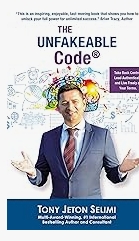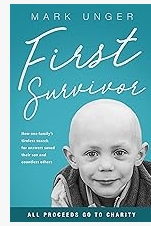
Marjan’s Fasting Firepower has valid points and facts but is definitely a personal opinion piece. Marjan does not usually use primary research to back up his points on the benefits of fasting, but the news media’s interpretation of the research often leads to sensationalization of the results. Scriptural quotes were sometimes taken out of context, and the fasting experts quoted have been marginalized by the science world, not just medical/health scientists. This book was independently published. Thus, has significant formatting issues (at least in the OBC Reader).
Marjan is right that fasting, not only related to nutrition, can significantly impact a person’s emotional, physical, and spiritual health. As a registered nurse, I believe all healthcare clinicians need more training on using food as medicine. I am concerned about how Marjan seems to dismiss the knowledge of registered dieticians and others formally trained in nutrition for individuals with limited scientific training to critique research adequately. At this point, I am quite skeptical of how fasting and eating organic and unprocessed foods can treat or prevent mental illness. Before I can support such claims by Marjan, I will need to see more definitive research.
Not all individuals can follow a fasting routine like Marjan. Those who are impoverished in the inner-city cannot escape air pollution, have limited land to raise their own food, and often can only afford the highly processed and preserved food in the grocery store. Middle-class individuals in suburbia may not have the time or even enough land to raise their own food and often do not make enough money to buy organic foods. Marjan warns individuals with health concerns to work with knowledgeable healthcare clinicians before starting a fasting routine. I embrace this, yet finding such a clinician can be difficulty for most individuals.
I read this book as a free download on the Online Book Club (OBC) Reader application. This application was quite new when I downloaded it, so between the learning curve, the format of quotes within this book, and possible technical glitches, I found this book hard to navigate. It was hard to highlight specific words, especially near quotes and at the beginning of each chapter. If I wanted to make a note and then change the color of the highlighting, I found this impossible. I only found out when reading another book how to delete bookmarks.
Marjan’s Fasting Firepower is a personal, political, and editorial work. The information in it needs to be critically reviewed and communicated by the scientific community, not the testimonial that this book really is. I am actually more interested in Marjan’s other book 600 Devils: From Refugee to Redemption, a life impacted by smuggling, cannabis, psychedelics, conmen, cops, and assorted holy men. This is an area where Marjan is actually an expert; he is only an individual with experience in fasting.




